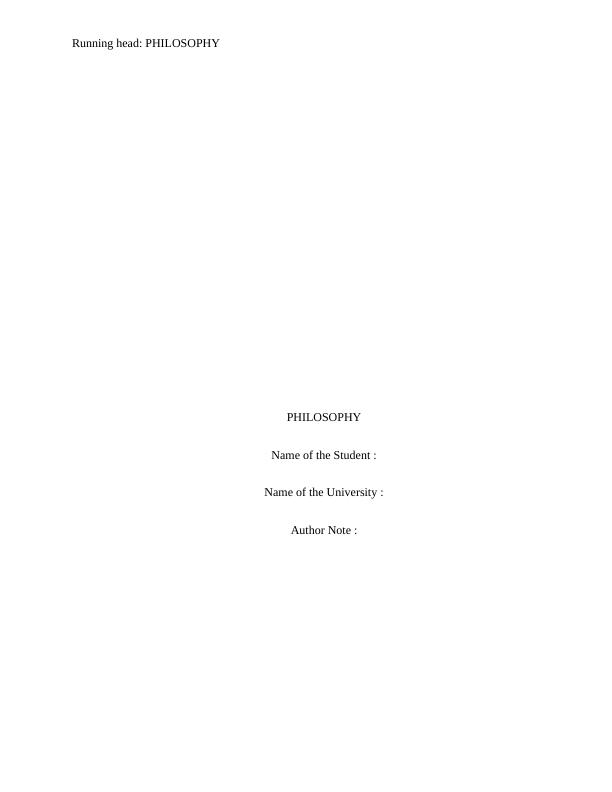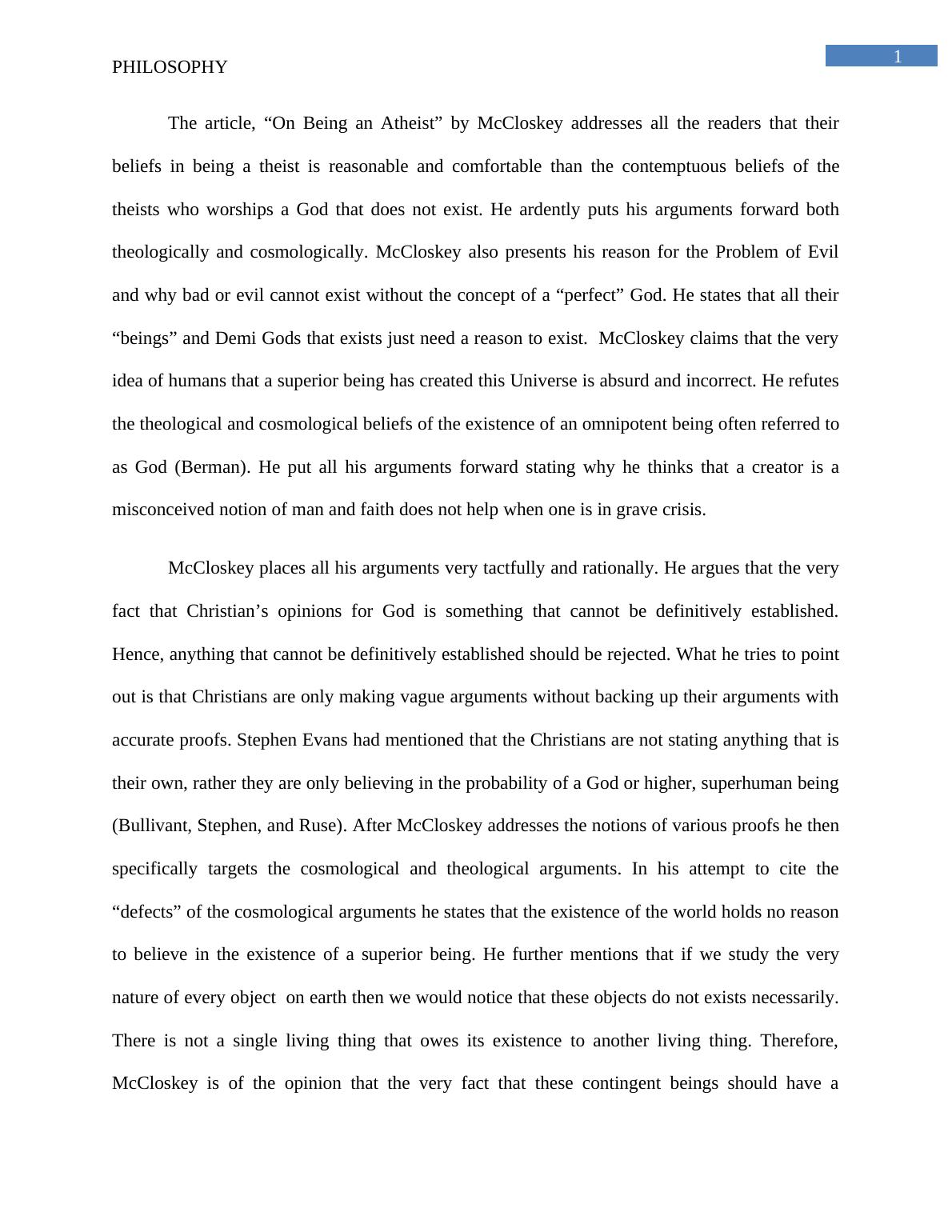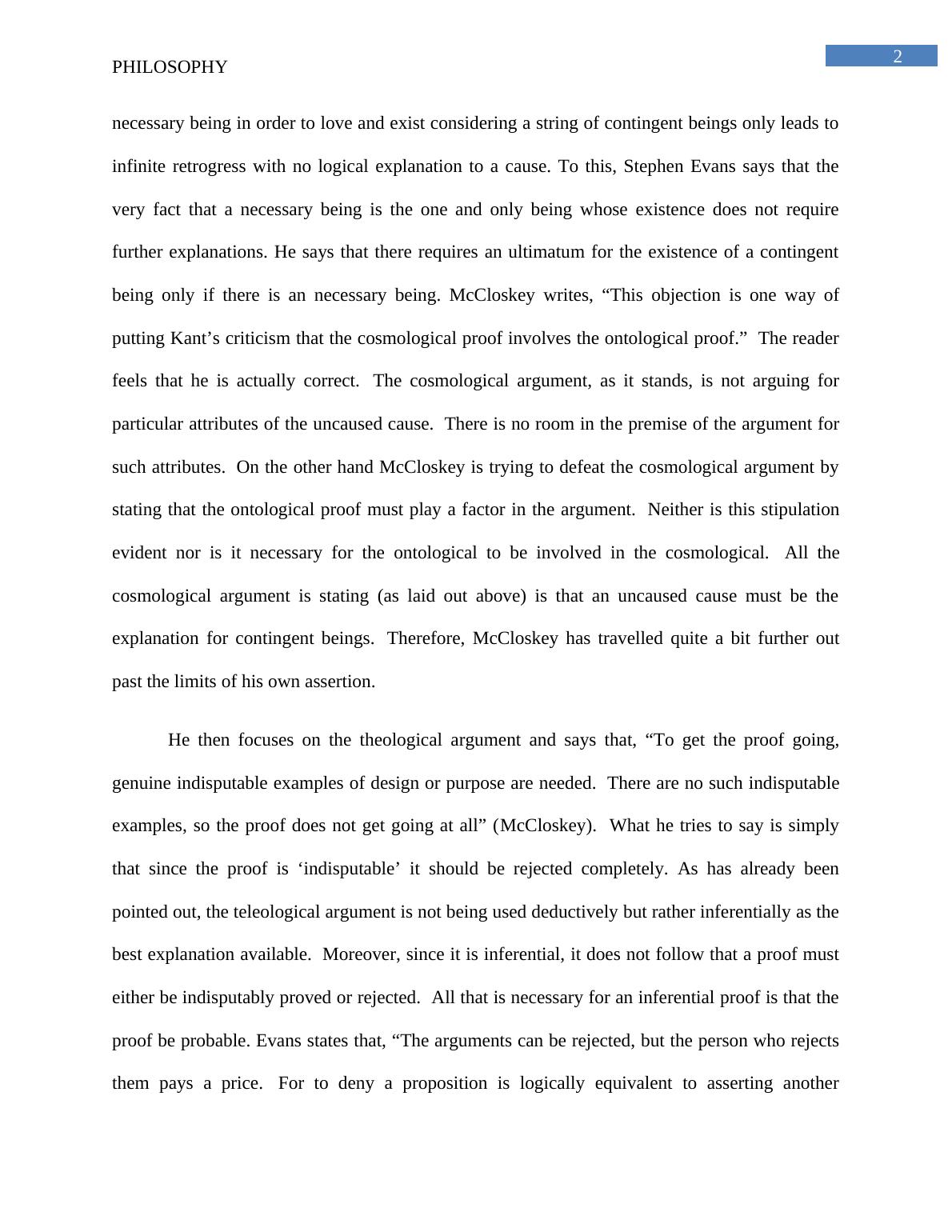On Being an Atheist: A Critical Analysis
Read and respond to H. J. McCloskey's article 'On Being an Atheist' by critically analyzing the classical arguments for God's existence and addressing the problem of evil.
7 Pages2161 Words473 Views
Added on 2023-05-30
About This Document
This article critically analyzes H.J. McCloskey's 'On Being an Atheist', addressing his arguments against the existence of God and the problem of evil. McCloskey's arguments are examined both theologically and cosmologically, and his claims are evaluated in light of counterarguments from other scholars.
On Being an Atheist: A Critical Analysis
Read and respond to H. J. McCloskey's article 'On Being an Atheist' by critically analyzing the classical arguments for God's existence and addressing the problem of evil.
Added on 2023-05-30
ShareRelated Documents
End of preview
Want to access all the pages? Upload your documents or become a member.
On The Existence Of God
|7
|1992
|266
The Existence of God: A Philosophical Perspective
|7
|1695
|387
God, Freedom and Evil
|4
|821
|197
Argumentation on: Does God Exist?
|5
|1469
|140
Assignment on philosophy PDF
|5
|1452
|40
God does not exist
|11
|2536
|119



